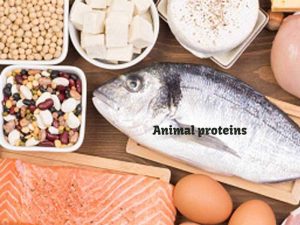What is Nutrition?
Nutrition is when all living beings (humans, animals, and plants) need nutrients through food to perform various vital functions.
The process of providing or obtaining the food necessary for health and growth.
The above refers to a biological process: from nutrition, living beings absorb the nutrients from the food and liquids consumed to have adequate, efficient, and healthy development and growth.
On the other side, it requires to mention that this study includes different fundamental aspects:
1. Feeding
2. Health and
3. Balance diet
Types of Nutrition
Autotrophic Nutrition
Autotrophic nutrition refers to feeding on oneself, synthesizing organic substances. In other words, it the nutrition carry out by those living beings capable of producing their food.
Plants are a clear example, as they feed thanks to photosynthesis.And living things that carry out the photosynthesis process are called photolithoautotrophs. In contrast, those that use elements of a chemical nature are chemoautotrophs, for example, bacteria.
Hetertrophic Nutrition
Heterotrophic nutrition designates as heterotrophic organisms that need others to live and
feed on organic materials manufactured by other creatures.
Examples of heterotrophic nutrition are mushrooms, animals, and many bacteria and protozoa or protozoa,and also it produces multifaceted organic molecules by taking advantage of the energy of the autotrophic beings that have elite.
Advantages and Disadvantages of Nutrition
Advantages
1. It can become your regular diet.
2. It is delicious and enjoyable.
3. It protects us from cardiac diseases and blood burden.
4. It prevents certain types of cancers, such as breast cancer.
5. Slows aging and promotes longevity (publication of free radicals).
6.After that combined with consistent physical activity helps fight obesity.
7. Increases HDL cholesterol (good fatty acid), which helps prevent arteriosclerosis.
8. It supports the resistance system, which helps prevent respiratory diseases and antipathies and
9.Therefore, It has antioxidant properties.
Disadvantages in poor nutrition
1. Weight Gain
2. Nutrient Deficiencies
3. High Blood Pressure and
4. High Cholesterol Levels
Precautions
1. You have to learn to select good food.
2. You must limit your consumption of red meat
3. You have to have sufficient time and endurance to put together Mediterranean dishes.
Importance of Nutrition
Nutrition’s primary characteristic is to convert and extract the essential vitamins from the food we devour. Through this procedure, the frame generates the required electricity to hold the body and increase its functions.And It also produces the essential elements for acquiring, assimilating, and metabolizing vitamins by the body.
Therefore, this information is for overall informational purposes only. And this page’s nutrition facts and statements are designed for educational and resource purposes and substitute for professional nutritional advice. Therefore if you have any concerns and queries about your diet should consult a nutritionist.
How to Maintain Healthy Nutrition?
First, we have already explained, it is essential to have proper eating habits to have good nutrition. In addition, physical exercise coupled with the consumption of nutritious food helps us stay healthy and fit.
So,remember that no food provides us with all the necessary nutrients. And that is why a balanced diet free of junk foods or in a small proportion recommend if we do not want to eliminate them. In this sense, a healthy diet should make up of the following food groups:
Bread and cereals:
However,they are a great source of carbohydrates. In addition, they are responsible for giving us enough energy to carry out daily activities and maintain body temperature.
For example,Fruits, vegetables, and greens have the highest amount of vitamins, fibers, and minerals
With its regular intake, we help the metabolic processes to stay under control.
Dairy products:
They are the primary source of calcium and also contain animal protein. The consumption of dairy is vital during growth, as it helps form tissues in the body.
Eggs, meat, and fish:
This group of nutritious foods is the primary source of animal protein.

Legumes and nuts:
For integral health, these foods cannot be missing in our diet. They fulfill three functions such as energy, plastic and regulatory.
Conclusion
In brief Nutrition is the natural manner by means of which our body absorbs nutrients from food. And these vitamins are necessary for our body to hold top of the line functioning, maintaining approaches including metabolism or digestion in proper balance.
In addition, true nutrition lets in the body’s biochemical and physiological approaches to carry out in the exceptional manner. In fact, the consumption and expenditure of calories are adequate.
Though,The nutrition links to the food we eat. Therefore, a good diet translates into adequate nutrition, thus preventing diseases.

